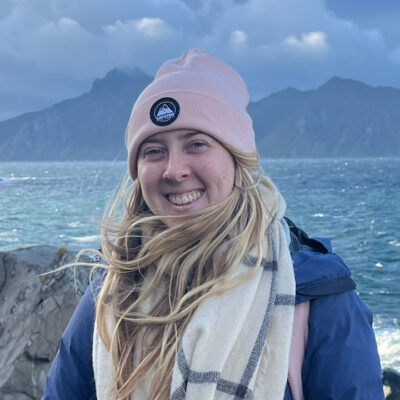2017 L’Oréal-UNESCO for Women in Science Fellowship
By Hudson Institute communications
Dr Jaclyn Pearson from the Centre for Innate Immunity and Infectious Diseases has been named as a L’Oréal-UNESCO For Women in Science 2017 Australian Fellow. The prestigious fellowship recognises Dr Pearson’s contribution to science and will support her career progression. Read about what has inspired Dr Pearson and her work.

Dr Jaclyn Pearson stems her fascination of science to a laboratory class in her undergraduate studies at University of Western Australia. As she first looked down the microscope at the tiny stained bacteria, Jaclyn was amazed at how such a small organism could cause so much harm (or benefit) to human health. Distracted by her love of music, Jaclyn took time away from science to tour with her chart-topping rock band, until finally she returned to her passion of science, specifically microbiology.
For the past eight years, Jaclyn has been a valued researcher at Doherty Institute at The University of Melbourne and the Royal Melbourne Hospital, leading world-class research published in the prestigious journal ‘Nature’ and several other leading microbiology journals. Jaclyn is an NHMRC Peter Doherty Early Career Research Fellow and recently accepted a position as a Research Group Head at Hudson Institute/ Monash University where she will lead her own independent research team.
Jaclyn’s key research interest is of the microorganisms of the gastrointestinal tract, specifically in inflammatory bowel diseases (IBD). This autoimmune disease is a major global health concern, with Australia having one of the highest prevalences in the world. Many studies have tried to identify the underlying mechanisms of IBD, but given the complexity of immune responses in the gut environment, much remains unknown and current treatments are only partially successful.
In her new role, Jaclyn plans to study the dysregulated immune response seen in IBD and understand how the gut microorganisms play a role in disease severity. Jaclyn will draw on her expertise in microbial models to study the immune response and to characterise the microorganisms within the gut during infection, to understand the most critical contributing factors to IBD.
Jaclyn has previously identified that gut pathogens specifically target host mediators of inflammation and programmed cell death (apoptosis) for modification, disabling their normal function to promote the bacterial infection and spreading. Therefore, Jaclyn will look at a group of host proteins known to be key immune signalling factors that mediate inflammation, apoptosis and necroptosis, and determine which host proteins are essential in protecting against gut infection, and understand how they contribute to the maintenance of gut homeostasis.
Jaclyn’s findings will improve our understanding of the underlying mechanisms of IBD and inform future therapeutic development. Her work could identify host factors that influence the development andseverity of inflammatory disorders of the bowel.
The L’Oréal-UNESCO For Women in Science initiative began 20 years ago. Since that inaugural year, the L’Oréal Foundation and UNESCO (the United Nations Educational, Scientific and Cultural Organization) have strived to support and recognise accomplished women researchers, to encourage more young women to enter the profession and to assist them once their careers are in progress.
The solutions to attracting more women to science appear so obvious that few would disagree with them. We should, in particular, instill confidence in girls from an early age by showing them their own potential. More women scientists should also be able to obtain positions of responsibility, just like their male counterparts, so that future generations will have role models to inspire them.
The current situation, however, indicates that, well into the third millennium, a considerable discrepancy exists between what society professes to believe and what we actually do. Much remains to be done with regard to gender balance in science. Most tellingly, women account for only 30% of the world’s researchers. There are still great barriers that discourage women from entering the profession and obstacles continue to block progress for those already in the field. Science is crucial in tackling some of the world’s most pressing issues and we need every talented mind available, be they men or women.
Contact us
Hudson Institute communications
t: + 61 3 8572 2697
e: communications@hudson.org.au
About Hudson Institute
Hudson Institute’ s research programs deliver in three areas of medical need – inflammation, cancer, women’s and newborn health. More
Hudson News
Get the inside view on discoveries and patient stories
“Thank you Hudson Institute researchers. Your work brings such hope to all women with ovarian cancer knowing that potentially women in the future won't have to go through what we have!”





